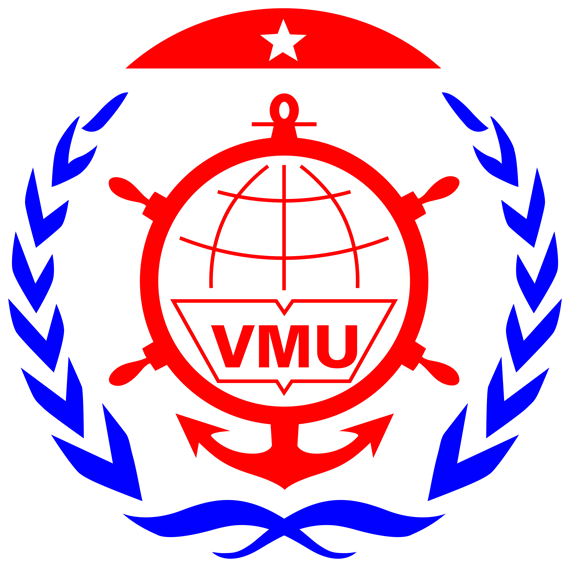1. Introduction
|
Program title: |
Bachelor of Construction Management |
|
Graduation degree: |
Bachelor's degree |
|
Study model: |
Full-time |
|
Total credits: |
139 |
|
Used language: |
Vietnamese |
|
Training duration: |
4 years (8 semesters) |
|
Responsible Faculty: |
Faculty of Civil Engineering |
|
Website: |
|
|
Address: |
Room 903, 9st floor A6 Building, Vietnam Maritime University 484 Lach Tray - Le Chan - Hai Phong |
The Bachelor of Construction Management program at Vietnam Maritime University is designed and managed by the Faculty of Engineering. It is developed based on curricula from various prestigious domestic and international universities and is regularly updated to align with industry demands and the regulations of the Ministry of Education & Training and Vietnam Maritime University. The program equips learners with comprehensive knowledge, technical skills, professional competencies, and attitudes in construction management. It adheres to the Vietnamese National Qualifications Framework and international standards, preparing graduates to excel in a competitive and evolving global industry in the 21st-century workforce. Graduates will receive a Bachelor's degree in Construction Management, enabling them to implement, supervise, and manage construction investment projects effectively. They are trained to be dynamic, creative, and adaptable professionals, ready to compete in the Asia-Pacific region and contribute to national development and international integration. Graduates are qualified for various roles, including: Construction Project Manager, Construction Supervision Engineer, Construction Consultant, Cost Estimation Engineer, Construction Quality Management Specialist, Infrastructure Manager.
These roles encompass a wide range of responsibilities, including project planning, construction supervision, cost management, quality assurance, occupational safety, and infrastructure management. The program ensures that graduates are highly competent professionals, capable of leading construction projects and advancing the industry both nationally and internationally.
With a strong foundation in both theoretical knowledge and practical application, the Bachelor of Construction Management program at Vietnam Maritime University provides students with the essential skills to succeed in the modern construction sector. Graduates will be well-prepared to address contemporary challenges, including sustainable construction, digital transformation, and advanced project management techniques..
2. Curriculum
The Bachelor of Construction Management program at Vietnam Maritime University is a specialized field of study that equips students with the essential knowledge and skills to effectively manage, supervise, and implement construction projects. Spanning eight semesters, the program combines theoretical learning with practical application, ensuring that students master fundamental principles while staying updated with modern technologies and management practices in the construction industry.
Semester I for foundational knowledge and critical thinking: Students develop logical thinking, analytical, and problem-solving skills through courses such as Algebra, Calculus, Physics 1, General Law, and Introduction to Construction Engineering. Additionally, students can choose elective courses to enhance communication and teamwork skills, such as Soft Skills and Basic English 1.
Semester II for technical drawing and structural fundamentals: This semester focuses on technique proficiency and foundational engineering principles. Key courses include: Technical Drawing, Engineering Chemistry, Structural Mechanics, and Hydraulics. Students can also choose elective courses such as Office Informatics or Entrepreneurship and Innovation in Business.
Semester III for construction materials and site investigation: Students gain hands-on knowledge of construction materials, and geological properties, and develop skills in surveying and site investigation through courses such as Construction Materials, Geotechnical Engineering, and Basic Surveying. These subjects help students build a solid foundation for advanced studies in subsequent semesters.
Semester IV for structural engineering and construction management: Students study courses such as Soil Mechanics and Foundation Engineering, Steel and Reinforced Concrete Structures. They gain knowledge of effective management methods, data analysis, and statistics in construction business management through courses like Construction Management Science, Construction Business Statistics, and Contract Management.
Semester V for structural principles and urban infrastructures: Students explore the principles of structural design and calculation through the course of Principles of Structural Engineering, and learn about the construction process of urban infrastructure projects in Urban Infrastructure Construction. They apply mathematical models in construction economic analysis through Mathematical Modeling in Construction Economics, study urban planning and sustainable management in Urban Management, and learn to calculate construction costs in Construction Cost Estimation.
Semester VI for advanced construction management and modern techniques: The program introduces advanced topics such as Construction Risk Management (Identifying and controlling risks in construction), Construction Investment Economics (Evaluating the financial viability of construction investment projects), Business Management in Construction Enterprises (Understanding the management and operation of construction businesses), Construction Techniques in Management (Studying modern construction methods and BIM (Building Information Modeling) Applications in Construction Management.
Semester VII for quality control and field experience: Students focus on quality management, digital tools, and the bidding process, with courses including Quality Inspection and Maintenance of Urban Infrastructure, Construction Quality Management (Ensuring quality and standards in construction), Information Technology in Construction Management (Applying digital tools in project management), Construction Product Valuation (Calculating and valuing construction products), Bid Management (Understanding the bidding process and contractor selection). Additionally, students gain practical experience at construction companies or projects through Field Internship.
Semester VIII for graduation internship and final project thesis: the final semester is dedicated to practical application and professional readiness. Students participate in the Graduation Internship, gaining hands-on experience in real-world construction projects or companies. They also undertake a Graduation Project, where they synthesize and apply the knowledge acquired throughout the program to complete a comprehensive final project. This semester serves as a culmination of their learning, preparing them for professional roles in the construction industry.
The Construction Management Program at Vietnam Maritime University ensures that graduates are well-equipped with the knowledge, skills, and attitudes to thrive in the construction industry. With a strong emphasis on industrial relevance, innovation, and global integration, graduates are prepared to contribute effectively to socio-economic development and international infrastructure projects.
